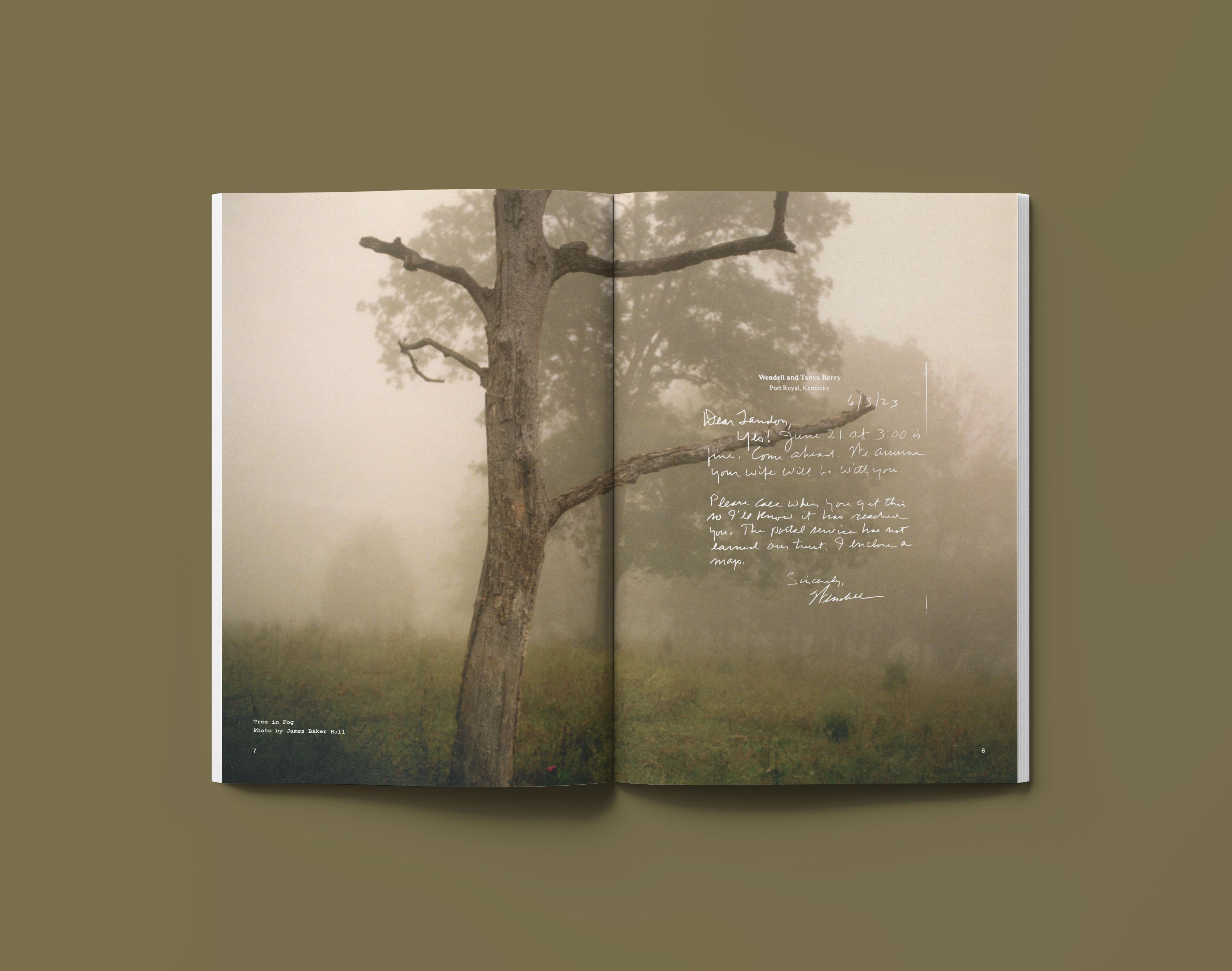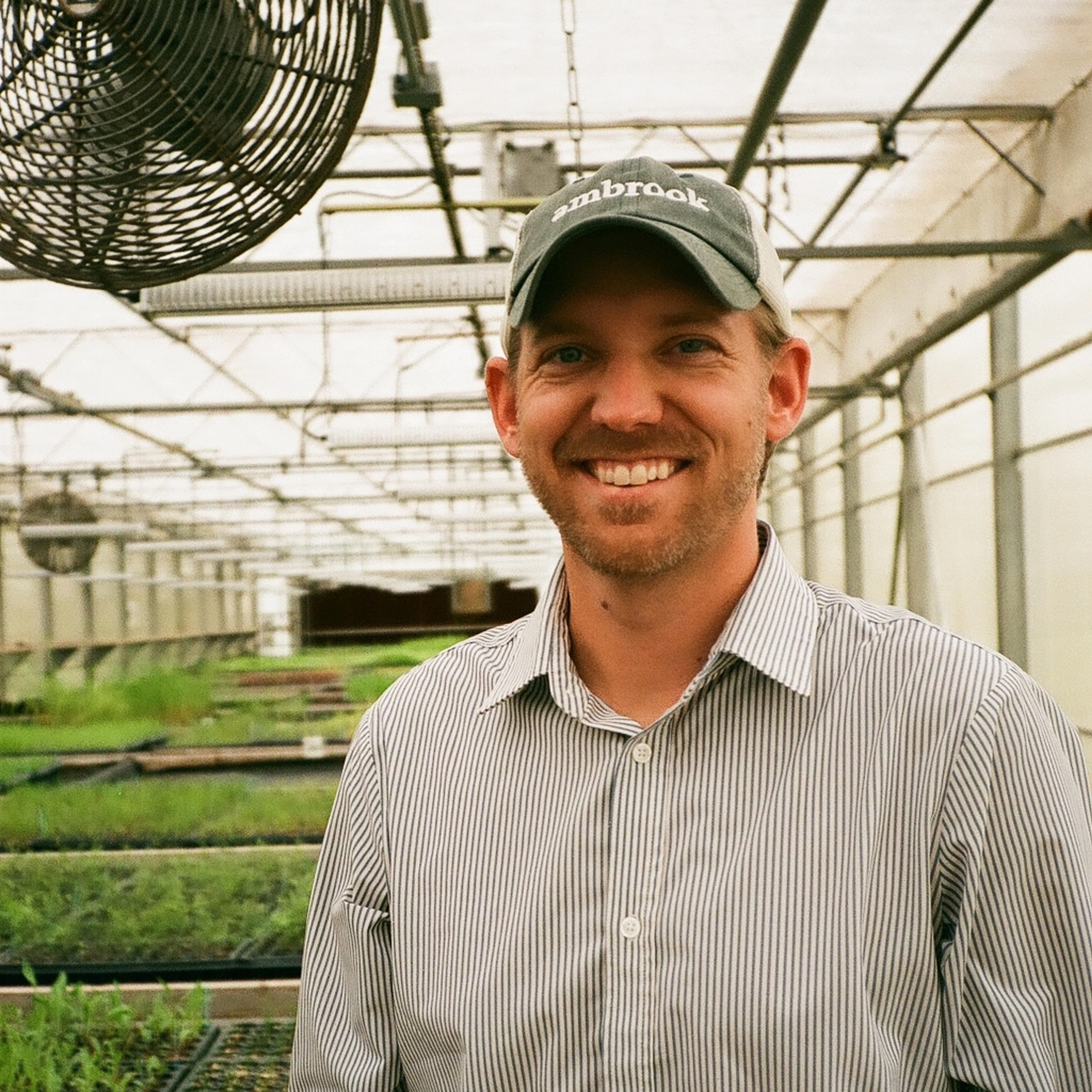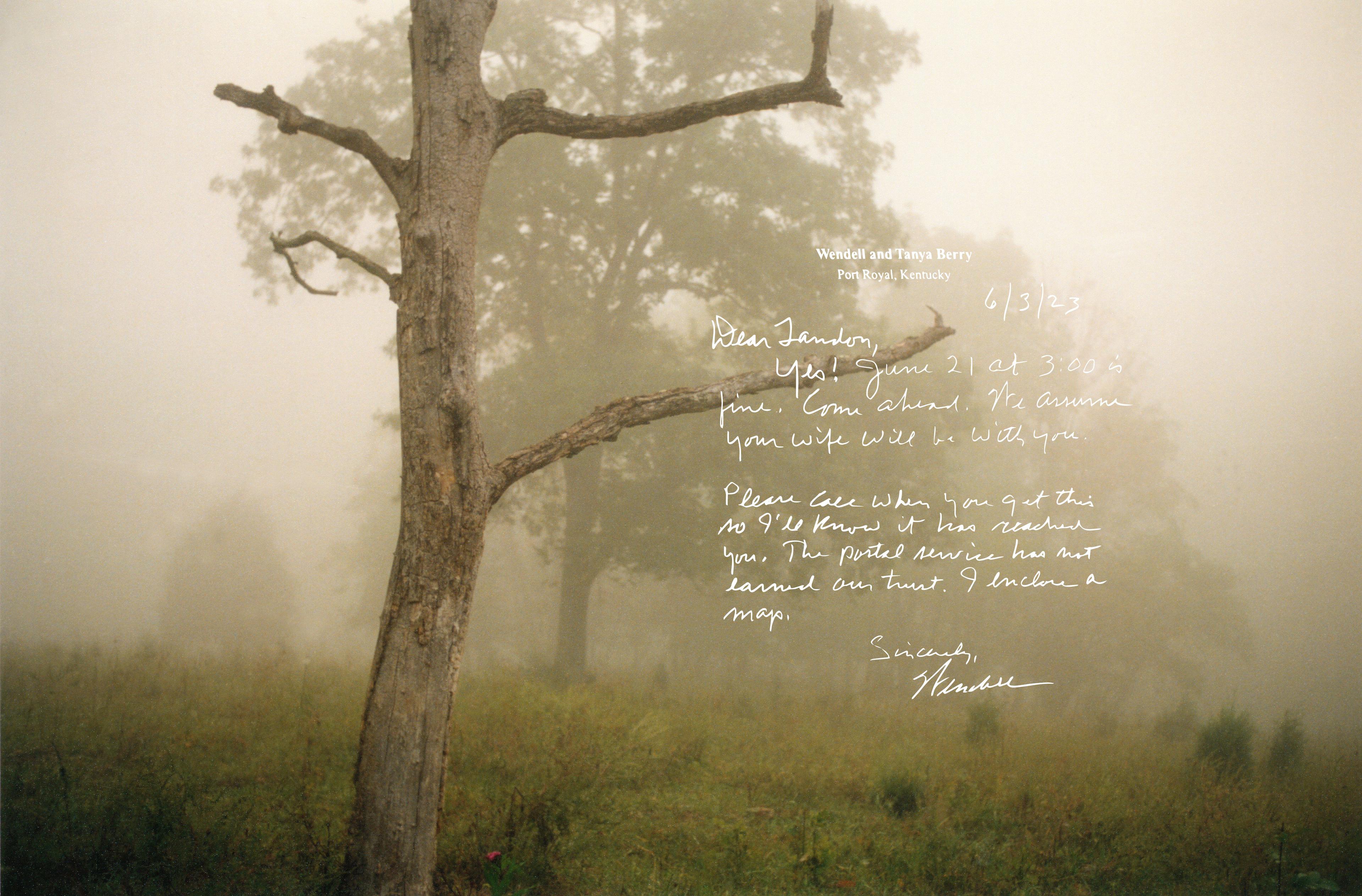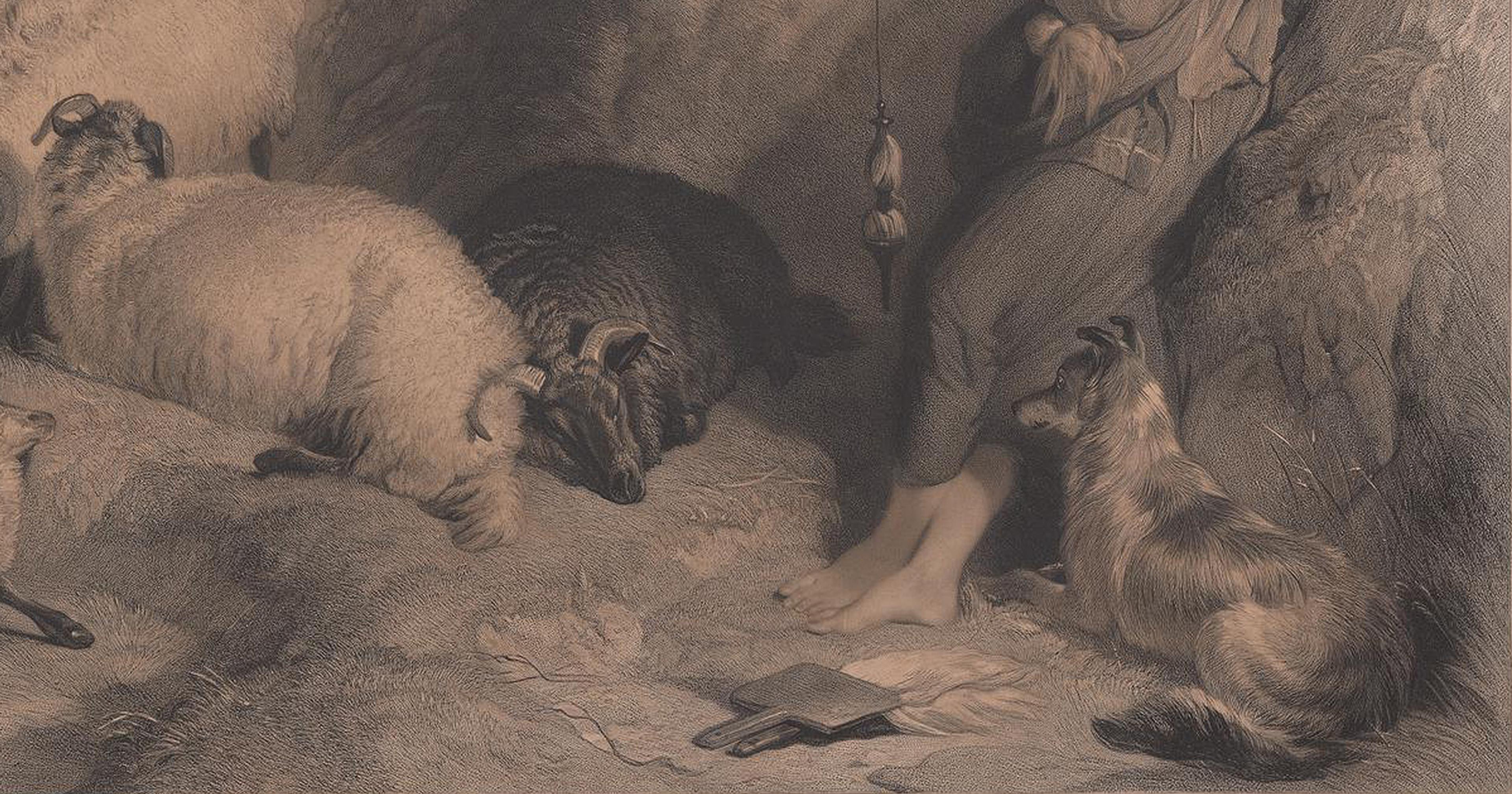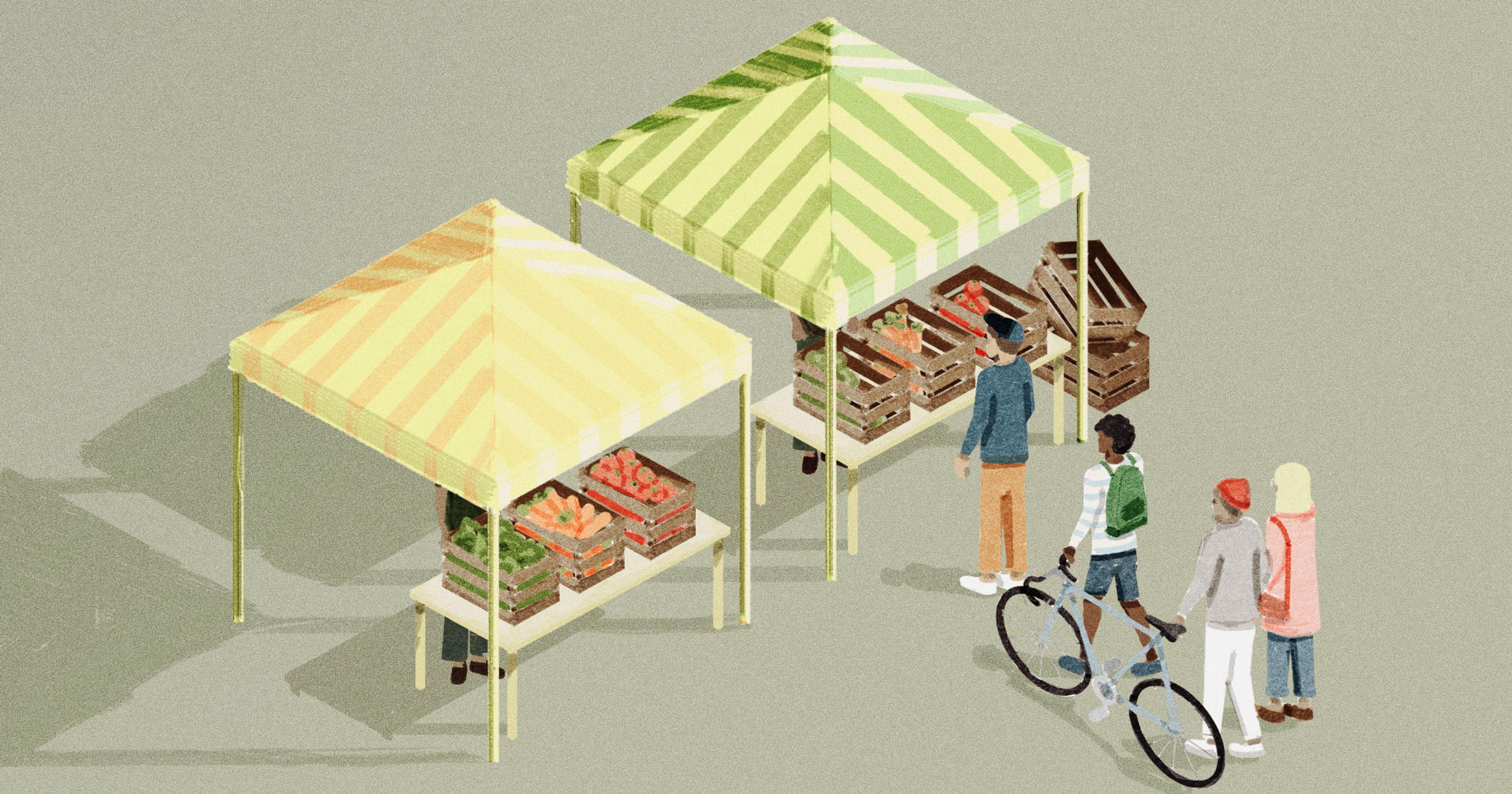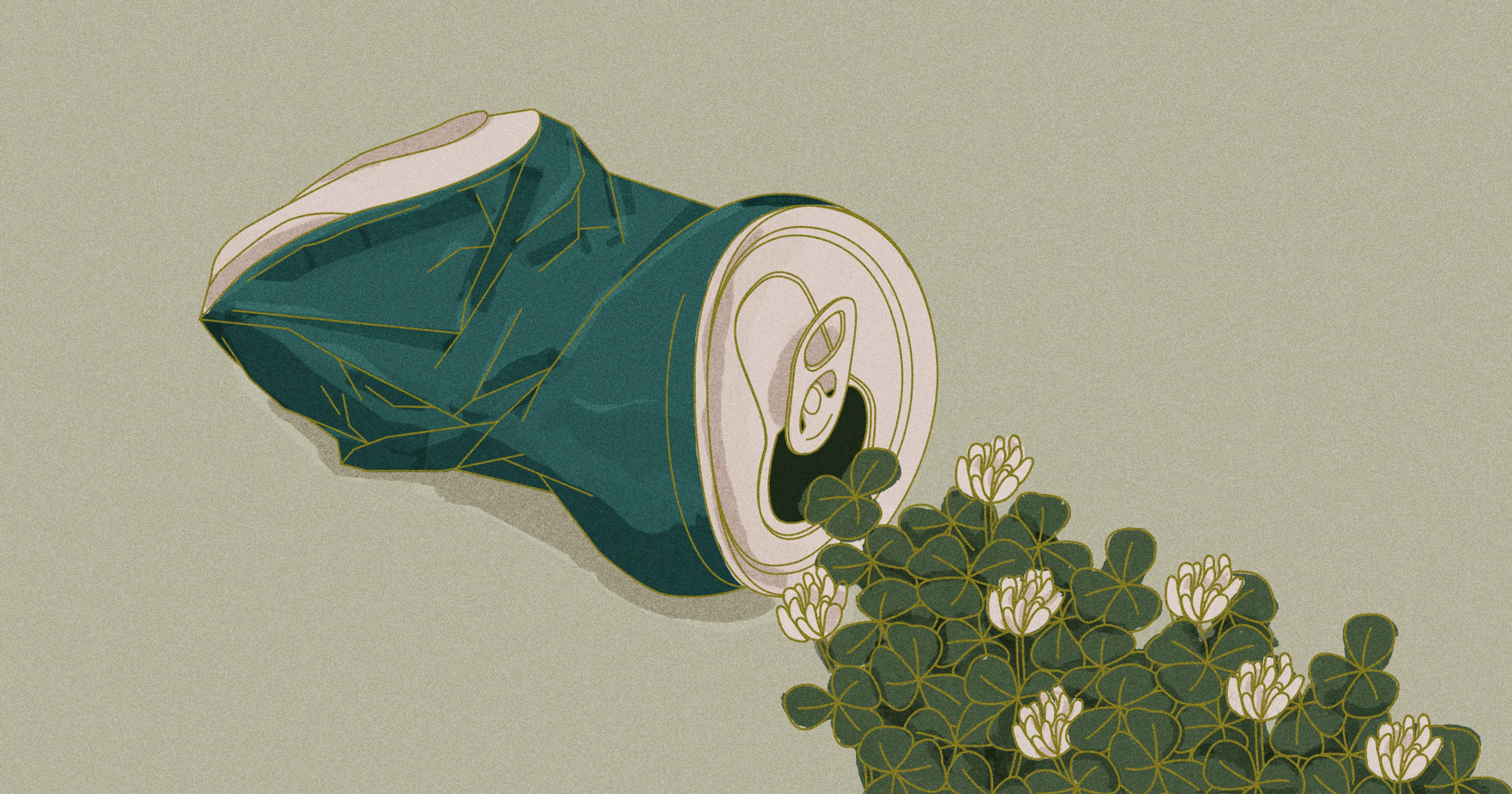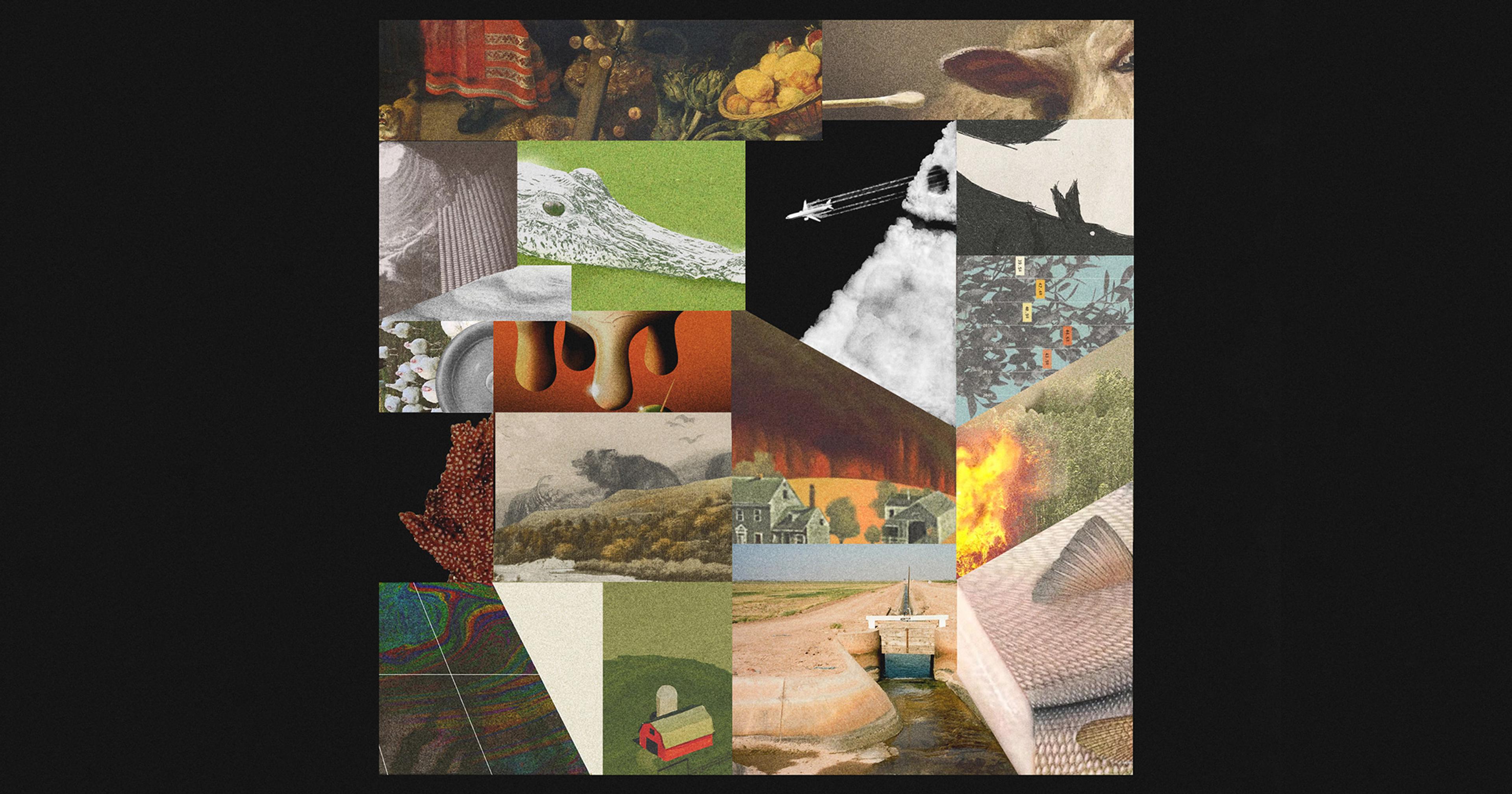After years of written correspondence with the iconic rural writer, a “sixth-generation farm kid” reflects on getting to meet his hero.
Have you heard of Wendell Berry? That question has come out of my mouth a dozen times in the last year.
I was raised in a setting as rural as they come, a sixth-generation farm kid on both sides of the family. Mom’s side is farmers all the way back to Norway; dad’s side stretches back to Germany. We still operate a corn, soybean, and popcorn farm in the sandy, irrigated soils of Mason County, Illinois, but I moved away after getting a degree in agricultural economics at the University of Illinois. I’ve since worked at multiple agribusinesses, finally ending up here at Ambrook.
For most of that time, I had never heard of Wendell Berry.
In June of 2023, I made my way down winding narrow roads in the river-lined Kentucky foothills to visit Wendell and his wife Tanya at their farm. But this journey really started a few years prior, while loading brush.
In 2016, my brother Logan, a 24-year-old beginning farmer, needed help clearing an unkempt patch of trees. During a long, labor-heavy Thanksgiving weekend, we got into the usual brotherly skirmishes over the best way to do the job. It was the sort of banter that makes manual labor fun; we had decades of practice. In gratitude for sprucing up his new land, my brother gave me a gag gift on Christmas morning: Berry’s The Art of Loading Brush.
Our family’s Christmas gifts have a way of celebrating, sometimes tongue-in-cheek, the highlights of our lives the prior year.
Logan hadn’t read the book but based on its title, he felt it was the proper way to school me on clearing a field. It was a textbook of nonfiction, fiction, and poetry, written by Wendell Berry. It was the first time I’d heard of him.
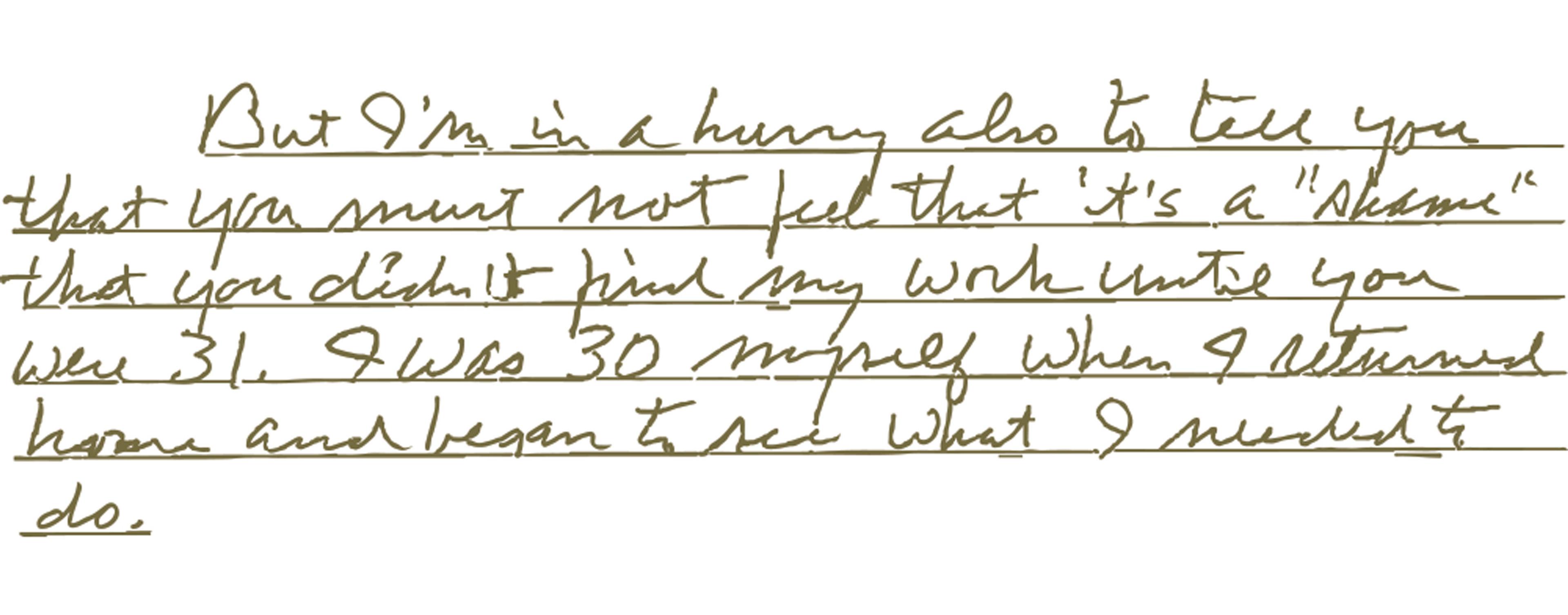
For those who don’t know, Wendell Berry is both a gifted writer and a farmer from Kentucky. His first work was published in 1968 after a fellowship at Stanford, before he became a Guggenheim Fellow in Europe. He was climbing the academic ranks on the tenure track at NYU, when in his early 30s, he gave it up and moved back to Kentucky. He taught a little, read and wrote a lot.
In the decades that followed, his work produced its own evangelists — he is something of a prophet for the organic, sustainable, regenerative food movements. I challenge you to read a farm or food book, watch a farm or food documentary, or dig into the background of a sustainable agriculture company and not find a nod to Wendell Berry. (In fact, you’re reading Ambrook’s nod to him right now.)
That’s who Wendell is. But it is his profound beliefs, not his pedigree, that provoke so much widespread adoration. He believes in our inescapable, spiritual belonging to living on earth; he cares deeply about how we use its resources to sustain ourselves and our neighbors. The more we rely on things further from our home, and our neighbors, the more broken things become. He speaks with force against our modern, highly tech- nical economy, a sentiment that has earned him both acolytes and detractors.
But I didn’t know any of that when I opened The Art of Loading Brush. My brother’s gift went right on the shelf, accidentally placed with the front cover staring whenever I passed by. It took three years before I had an unexpected open space to read for myself. With peace and quiet I’d not enjoyed since summer break in high school, I reviewed all the unread works in my house, evaluating what would help me learn and grow. I picked up Wendell Berry.
I did not jump right into Wendell’s lesser-known brush-clearing book, instead going for his seminal nonfiction work, The Unsettling of America. I was immediately floored. I kept going back to confirm the copyright year was 1977 — I couldn’t believe it. The perspective seemed modern and timely, as did the problems he pinpointed. I proceeded to mark up every page with notes and quotes. It felt vivid and real and important, with virtually no indication it was written decades ago. Nothing new under the sun.
In Unsettling, he laid out a vision, or a revision, of what had progressed in farm country after World War II. He detailed what had been left behind from a culture that valued people as neighbors and cooperators, producing products for their own community first. He laid out all the ways in which macroeconomic forces reversed those steps, producing for the economy first and making neighbors and community an afterthought.
It all hit pretty close to home. Wendell Berry looked at agriculture critically, while the farmers I grew up with looked at the outside world critically. I wanted more of my friends to read his work. That book Unsettling — and the subsequent ones I devoured — made me wonder who else may have encountered his ideas. Have you heard of Wendell Berry?
Many of my peers had not read him. But there were a handful, typically friends from more urban circles, or anyone who studied literature in college. For those who have read Wendell Berry, the mere mention of his name evokes a way of viewing our place in the world and our connectivity to it.
Eventually, word of my Wendell evangelism got around. A friend of a friend reached out and asked me to plan a Wendell Berry evening. This guy was another farm-kid-turned-city-dweller — he was filled with questions about Wendell’s work. Along with a few others, we spent a night discussing the trade-offs we had made.
Across his nonfiction, poetry, and his fictional universe of Port William, Kentucky, Wendell keeps coming back to the notion of community. What does it mean to be raised by a village of people? How does the nature of that upbringing differ outside of rural America? What gets lost? We got the sense that it’s increasingly hard to replicate what we had in our small farm towns 30 years ago.
At some point I decided to send a letter to the man himself — I had a lot to ask, and much to share. He received my first letter warmly, promptly writing back and inviting me to visit sometime. The only condition was that I stop by when I was already passing through Kentucky. As a forefather of modern-day environmentalism, he couldn’t support burning fossil fuels for a special trip just to see him. So I waited for a chance when I’d be passing through.

This past spring, I was invited to a wedding near Wendell’s farm. I wrote to him weeks ahead of time, asking if I could stop by. He obliged — suddenly it started to feel real. Before visiting, I crammed. I read a few of his essays that talked at length about the decisions that led him back to his family farm.
On the meandering drive from Lexington, the blue sky and the steep green hills rising up from the riverbank starkly contrasted the flat, wide-open cropland of Illinois. I had questions about Wendell’s origins in this land: What took him away, and what was it, exactly, that brought him back?
I wasn’t lucky enough to have kitchen-table conversations with any of my grandparents, all farmers. But on a remarkable June day in Wendell Berry’s kitchen, I got to learn about the life and times of those that came before me, an agriculture once known, but now mostly forgotten. After years of distant admiration, followed by a lengthy written correspondence, we would have a three-hour conversation about the nature of farming in America, the beauty of Creation, and the expectations of our culture, our families, and God, on how we should best steward the land.
Through the pages of his books and the moments shared at his table, I discovered a profound kinship. This was a man who understood that tending to the earth and nurturing the bonds of community are not just acts of sustenance, but acts of love that shape our souls.
When my brother and I tend to the next project on his farm, I’ll have a renewed appreciation for how we work the earth, figuring out how to do it together, working in tandem toward a common goal. And as I work to build the bonds of my own community, both near the farm and away from it, I will keep asking.
Have you heard of Wendell Berry?
This article first appeared in Ambrook Research Journal V. 01, a limited-edition print publication.
